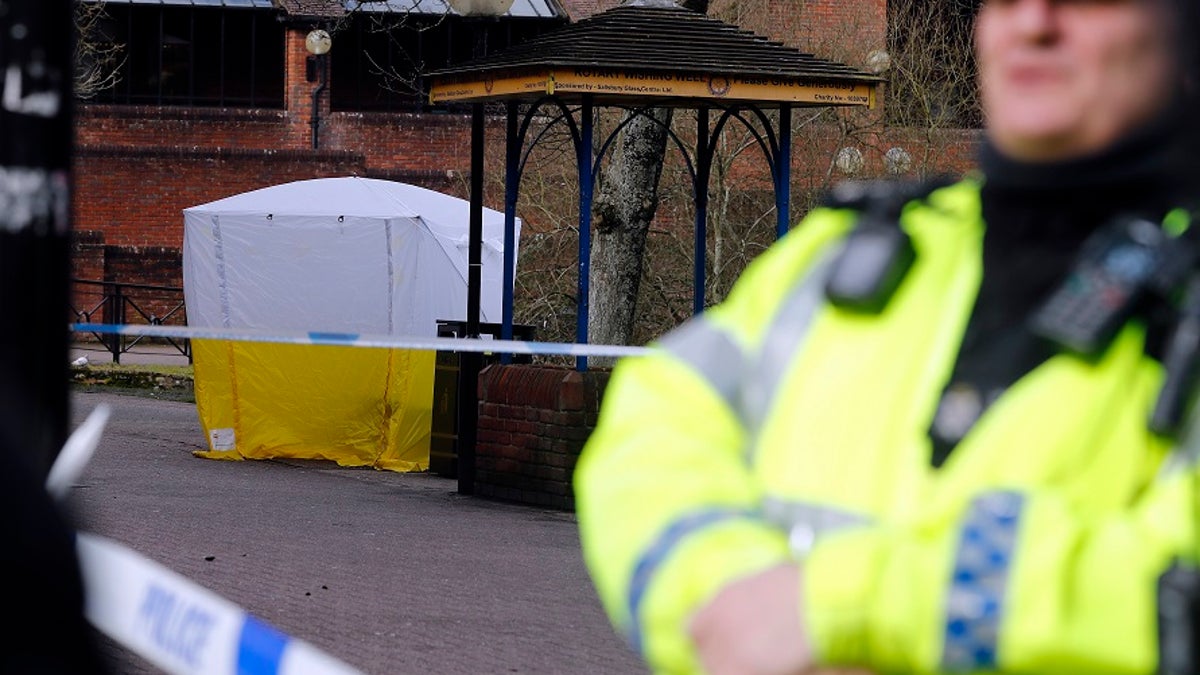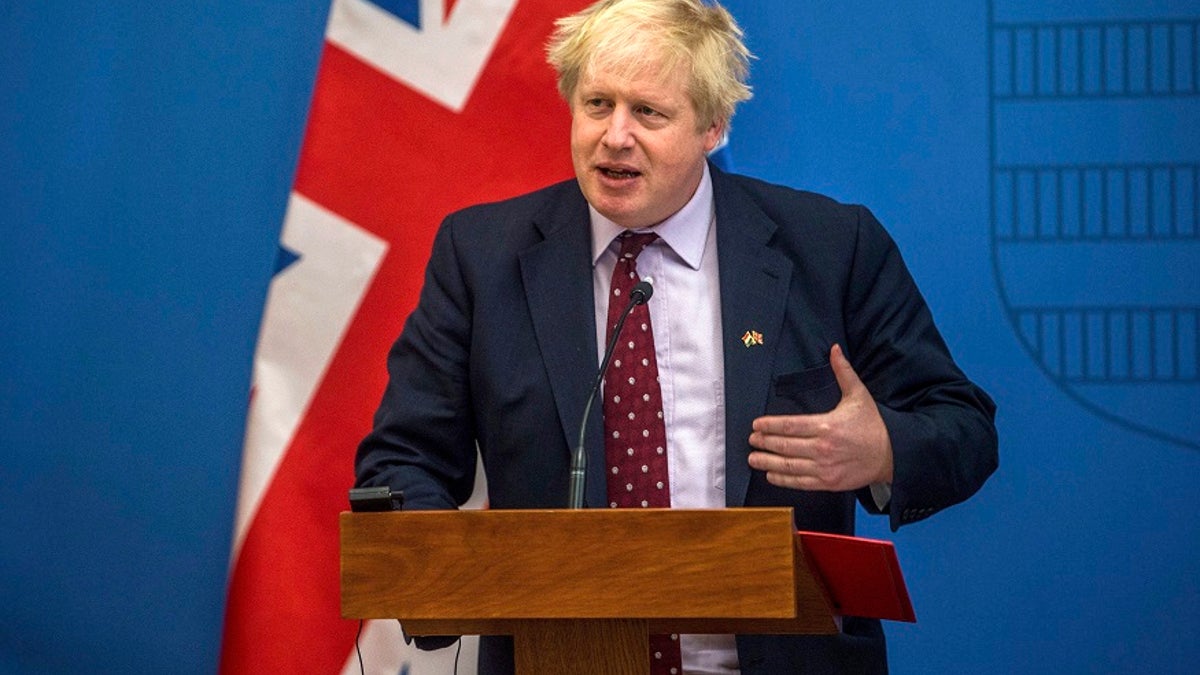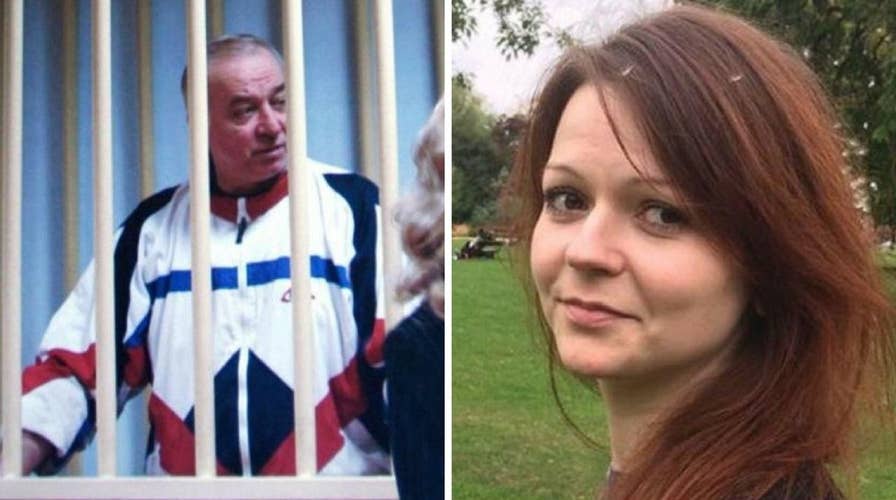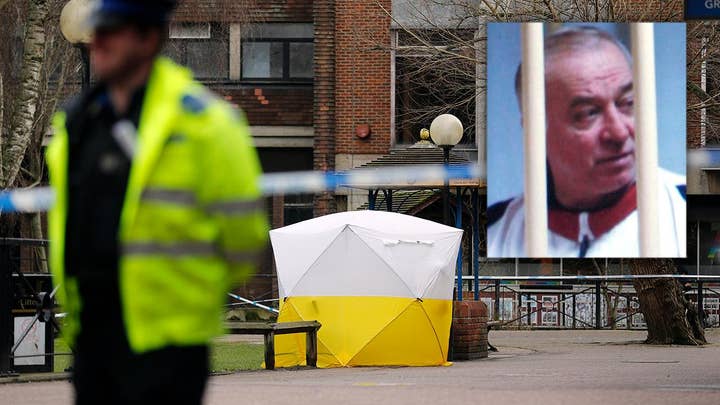Kremlin-ordered assassinations: A history
Poisoned ex-spy Sergei Skripal and his daughter are likely the latest victims in a long line of Russia's Kremlin-ordered hits. Here is a look back at the victims of alleged Kremlin-ordered assassinations.
British police announced Thursday that 21 people were being treated after a former Russian spy and his daughter were poisoned with a nerve agent.
Kier Pritchard, the acting chief constable of Wiltshire Police, said a "total of 21 people are being treated as a result of the ex-Russian spy poisoning," Sky News reported.
"Multiple people have been treated, around 21 people, including the man and woman found on the bench," Pritchard said. "A number of those have been through the hospital treatment process, they are having blood tests, support and advice."
Sergei Skripal, 66, and his daughter Yulia, 33, were found unconscious on a bench in the English city of Salisbury Sunday after being poisoned with a “very rare” nerve agent.
A source told the BBC the nerve agent used is thought to be rarer than Sarin gas.
A police officer, who was identified as Nick Bailey, also became ill after treating the father and daughter. Bailey is in serious but stable condition. Rudd said the officer is “talking and engaging.” She said it is highly likely the officer was exposed to the same nerve agent.
Pritchard said only Skripal, his daughter and Bailey are the only ones currently in the hospital.
Rudd said the attack is an "outrageous crime" and a "brazen and reckless act" but cautions it is too early to say who was behind it.
Rudd told the BBC that enormous resources are being directed at trying to figure out who might be responsible for the poisoning of Skripal and his daughter.
EX-RUSSIAN SPY, DAUGHTER REMAIN IN CRITICAL CONDITION AS UK LAWMAKERS PROBE POSSIBLE KREMLIN LINK

Police blockade area where the attack occurred in Salisbury, United Kingdom. (AP)
The Skripal case is reminiscent of the 2006 killing of another former Russian spy Alexander Litvinenko, who was poisoned in London with radioactive polonium-210.

Foreign Secretary Boris Johnson told lawmakers if Moscow is involved in the attack the government would act. (AP)
A British inquiry into Litvinenko’s death found that Russian agents poisoned him by lacing his tea with radioactive polonium-210 and that the killing was probably approved by President Vladimir Putin. Russia has denied any involvement in Litvinenko's death, and this week said it wasn't involved in Skripal's collapse.
Authorities do not believe the same nerve agent was used in the attack on Skripal and his daughter.
Foreign Secretary Boris Johnson told lawmakers Tuesday that if Moscow is shown to have been involved in the Skripal case, the government would act — possibly downgrading England's participation in this year's soccer World Cup in Russia. Johnson warned British officials may not be involved in the sporting event "in the normal way," but did not elaborate.
The BBC reported the investigation could take weeks before the government confirms any Russian involvement.
Skripal served with Russia's military intelligence, often known by its Russian-language acronym GRU, and retired in 1999. He then worked at the Foreign Ministry until 2003 and later became involved in business.
EX-RUSSIAN SPY, DAUGHTER POISONED BY NERVE AGENT IN ‘TARGETED’ ACT, BRITISH AUTHORITIES SAY
Skripal was convicted in 2006 in Russia on charges of spying for Britain and sentenced to 13 years, but was freed in 2010 in a U.S.-Russian spy swap.
Following his arrest in Moscow in December 2004, Skripal confessed to having been recruited by British special services in 1995 and feeding them information about Russian agents in Europe, receiving more than $100,000 for his services.
Skripal, whose wife and son died in recent years, reportedly told police before the incident that he feared for his life. He also reportedly told police that he believed he was poisoned.
Witnesses told the BBC Skripal acted “very strange” and “very agitated” moments before he was found unconscious on the bench. The former spy was seen “screaming at the top of his voice” for the check at Zizzi restaurant in Salisbury on Sunday.
Fox News' Travis Fedschun and the Associated Press contributed to this report.


